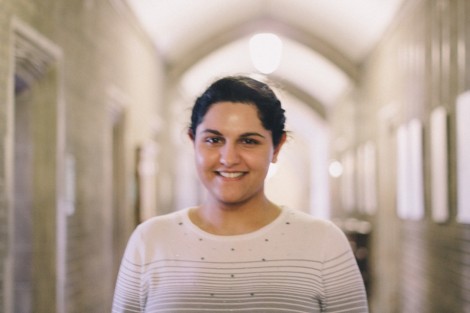At the end of 2015, SpaceX managed to launch and land a reusable rocket for the first time in history. The public has viewed this as a great step forward in making the colonization of Mars a possibility. Despite the SpaceX initiative, the Dutch Mars1 program, and many recent popular science fiction films about space travel, the non-scientific public may be directing their interest and their money into a goal that is not achievable. With growing concerns about the environment, critics debate whether or not the focus of our scientific attention should be directed a little closer to home. We asked U of T students for their opinions on whether we should direct our efforts toward space travel or saving the environment. Here is what they have to say:
“According to [science] right now, no [we won’t colonize Mars] because they have proven that there is water there but not that there is an inhabitable atmosphere. [We should still focus on] the environment. I mean, we are living on our Earth. We should be preserving our planet before trying to [inhabit] another planet, so our resources should go [towards] developing ways to lessen the impact on Earth and make it better.”
-— Jasjeet Matharu
Third-year neuroscience and immunology student
“I think that’s a question for far in the future. There are more important things we should be worrying about, [such as] fixing the environment before trying to populate Mars. We should be investing in the environment. I mean, space travel might be important far in the future but we have more pressing issues on Earth. We should be looking to do something about climate change, and [look] for alternatives to [living] on Mars.
— Jon Paul Mathias
First-year political science masters student
“I think the technology is there to do it eventually, [although] not right now. But before we get to [the] point [where that is possible], we would end up killing each other or destroying the Earth. I think we should definitely invest more on our own planet — I mean, we know more about the moon than we do about our own ocean.”
— Joshua Paras
Second-year industrial engineering student
“I don’t know. Maybe we should concentrate on making Earth a better place to live instead of looking [to live on other planets.] That’s a tough one because [it is a question of] where should we be, or how we should be directing science, I suppose. Maybe because my research does have to do with the environment, I would say [we should focus on the] environment, which isn’t to say that space exploration and other research isn’t important.”
— Sarah Larlee
First-year civil engineering masters student
“I think [we may populate Mars and] because of projects like [SpaceX] that we should reach Mars by 2030… If people can go to the moon, why not Mars? I think [we should focus on] the environment, I suppose, because if you don’t have the environment then you cannot [attempt] space travel… If the world goes to hell and we need a run away from global warming effects [we should] definitely [attempt] space travel. You need to first take care of the environment before worrying about science fiction, which [inhabiting Mars] is right now.”
— Mike Ivanov
Third-year history student







